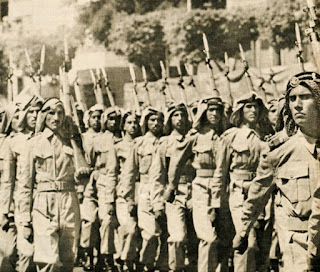Why I Hate Being an Arab
The self-hating Arab, it’s both a real thing for a lot of
angry frustrated people and an overused cliché. First, let me dispel any myths
surrounding the origin of this condition. Some suggest that our negative perception
of ourselves and our Arab identity and culture is informed by Western
propaganda pumped into our developing brains at a very young age through the
all-powerful Hollywood entertainment machine and through slanted news media rapportage.
This couldn’t be further from the truth. The well informed and aware Arab, the well-educated
bi-or-tri-lingual Arab is not that gullible, at least our electorates never
elected an Arab version of Donald Trump! We are far from easy to fool or trick
into believing bad things about our culture and national identity. We are the
experts on that subject and our hatred and derision for all things Arab are
based on observable facts over a long period of time.
Let us begin by exploring the roots of the Arab identity:
the Arabic language is a language spread far and wide by warriors of Islam, a
new religion that emerged around the seventh century anno-domini. The firmly
held beliefs of this new faith’s adherents and fighters made them extremely
effective at sweeping away old worn out empires in the region and expanding
their own proto-empire until the Arabic language became both widely spoken and a
firmly entrenched scholarly language from Iberia to the Hindu Kush. Outside of
the Arabian Peninsula, however, there are few people whose antecedents were formerly
part of a Muslim Empire that can claim to belong to this singular, well defined
Arab identity. In fact, recent conflicts in the Levant have shown how rich and
diverse our region really is, with obscure ancient languages still spoken in
certain pockets and communities still practicing religions considered
blasphemous by the mainstream.
For many in our region, Arabic is the language of State,
before that it was the language of empire, but above all it remains the
language of Muslims, the language in which ‘their’ Holy book is written and the
language of their conquering armies. As a Christian who converted to atheism,
this blanket singular image of the Arab as just one thing is both offensive to
me but also, if we were to be honest about it, true to some extent. The
nationalist movements of the early twentieth century in the Arabic speaking
provinces of the defunct Ottoman Empire tried to weave together a single national
identity and create a single political structure, an Arabic speaking regional
power if you will. They failed at that over ambitious plan, in fact, building a
two-lane road bridge made of tooth picks over the Grand Canyon would have been
a less ambitious undertaking!
There are of course well-defined similarities between the
micro cultures of Levantine communities, from Palestine to Lebanon, Jordan to
Syria and Iraq, but even among this smaller grouping of Arabic speakers there
are significant differences that make any form of political union sheer folly. And
yet the dream of union and great military success continues to infect our
thinking and we continue to carry with us the heavy burden of the unfulfilled,
the unhappy and frustrated, unable as we are to achieve the unrealistic
expectations established by the Arab nationalist narrative, to become real Arab
supermen! All we are left with is a sense of shame of being yet another
generation that has failed to achieve our full potential.
In the 70s political play ‘Kassak ya Watan’, the dialogue
between Duraid Laham’s character and his dead father’s spirit speaking from the
beyond, is exactly how many middle age Arabs feel today about themselves: “My
son, after all this time I feel embarrassed to ask about the Palestinian issue,
I assume that you returned the land to its people,” the father’s dead spirit
booms out from on high, to which Laham’s character replies: “You’re right
father… is this a question to ask after 25 years of struggle!” The audience erupts
in applause.
I’m sorry, but this is an awful burden to carry with us and
pass on to the next generation, it’s a terrible feeling to want to and feel ready
to achieve the ambitions outlined by the great, now long dead, Arab nationalist
dreamers, to liberate Historic Palestine, create a perfect Arab union, reestablish
an Arab renaissance, but also to know deep down how impossible this mission
really is! Failure, repeated and persistent failure over decades, begins to
define a nation before long and we are not even that, not a nation, but pseudo independent
States held together by authoritarian regimes. We are a lost people; our only
real connections are geographic and linguistic in addition to a lot of made up
stuff and inflated tales of past glories. So, for what it’s worth, I hate being
an Arab and I want out.





Comments
Post a Comment